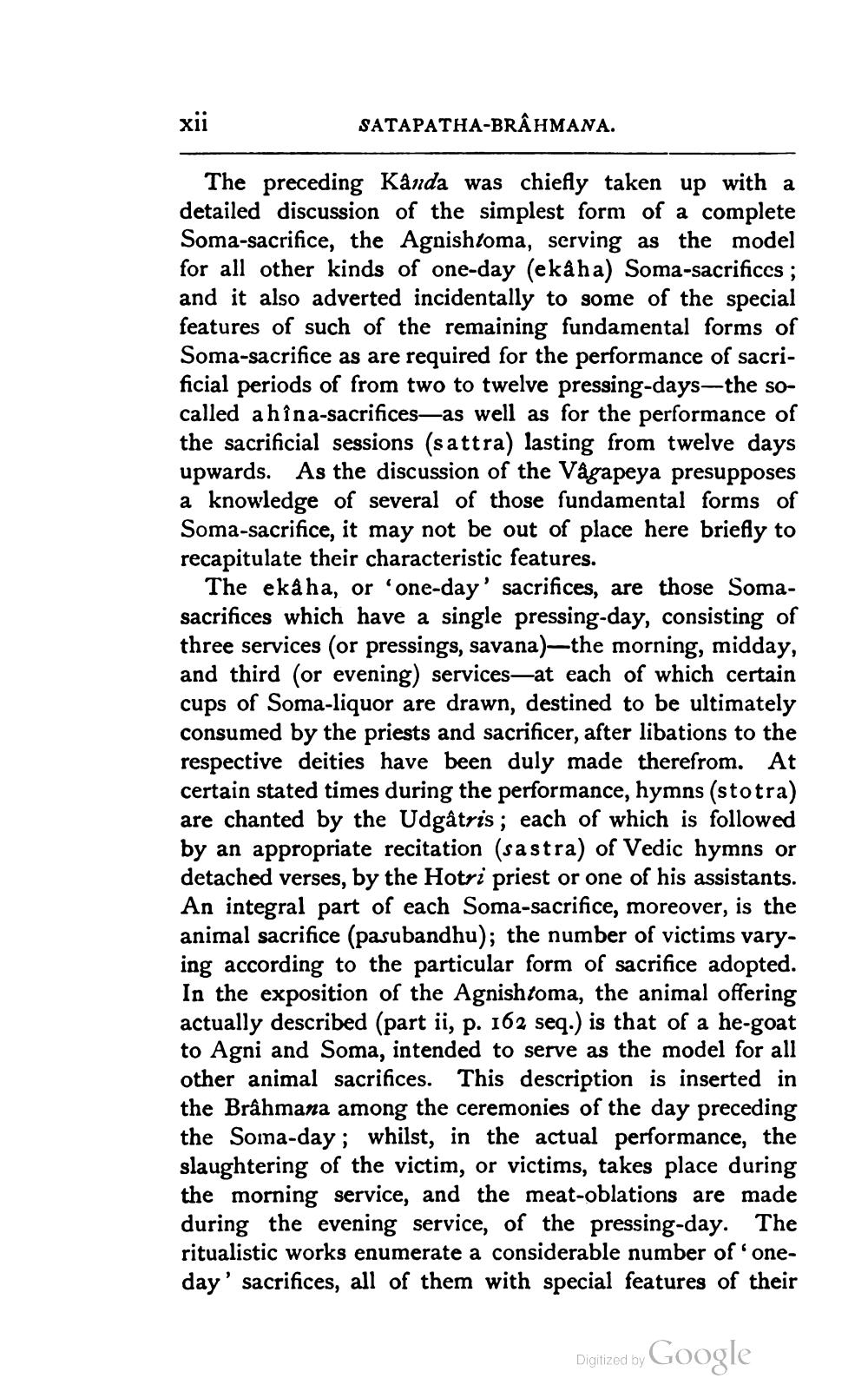________________
xii
SATAPATHA-BRAHMANA.
The preceding Kanda was chiefly taken up with a detailed discussion of the simplest form of a complete Soma-sacrifice, the Agnishtoma, serving as the model for all other kinds of one-day (ekâha) Soma-sacrifices; and it also adverted incidentally to some of the special features of such of the remaining fundamental forms of Soma-sacrifice as are required for the performance of sacrificial periods of from two to twelve pressing-days-the socalled a hîna-sacrifices—as well as for the performance of the sacrificial sessions (sattra) lasting from twelve days upwards. As the discussion of the Vågapeya presupposes a knowledge of several of those fundamental forms of Soma-sacrifice, it may not be out of place here briefly to recapitulate their characteristic features.
The ekå ha, or 'one-day' sacrifices, are those Somasacrifices which have a single pressing-day, consisting of three services (or pressings, savana)—the morning, midday, and third (or evening) services—at each of which certain cups of Soma-liquor are drawn, destined to be ultimately consumed by the priests and sacrificer, after libations to the respective deities have been duly made therefrom. At certain stated times during the performance, hymns (stotra) are chanted by the Udgâtris; each of which is followed by an appropriate recitation (sastra) of Vedic hymns or detached verses, by the Hotri priest or one of his assistants. An integral part of each Soma-sacrifice, moreover, is the animal sacrifice (pasubandhu); the number of victims varying according to the particular form of sacrifice adopted. In the exposition of the Agnishtoma, the animal offering actually described (part ii, p. 162 seq.) is that of a he-goat to Agni and Soma, intended to serve as the model for all other animal sacrifices. This description is inserted in the Brâhmana among the ceremonies of the day preceding the Soma-day; whilst, in the actual performance, the slaughtering of the victim, or victims, takes place during the morning service, and the meat-oblations are made during the evening service, of the pressing-day. The ritualistic works enumerate a considerable number of oneday' sacrifices, all of them with special features of their
Digitized by Google




